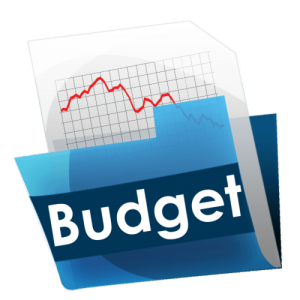Let’s Talk About Budgets, Baby
28.02.2009
I’ve been working on this whole budget plan thing for a couple of weeks now and I still don’t feel any further along than I was when I started. Oh, don’t get me wrong, I’m an intelligent person. I can grasp the very basics:
Income – Expenses >= 0
I mean, I did study accounting in college and I do have a programmer’s logical mind. Plus, I was a math minor. I get the most basic part of the concept. Really, I do.
However, I just don’t think my brain is wired right for easily latching on to the complexities. For instances, most books and examples out there all offer up examples of income that is the same amount and dished out on the same two days every month and most of the expenses are fairly simple and fixed every month; a few of the examples might show the occasional expense that might be paid quarterly and they all usually show groceries and dining out as unpredictable. Clearly none of us eats exactly the same thing day after day and no one is stupid enough to pretend to make the assumption in a sample budget even.
It seems like everyone these days are jumping on this zero–based budgetbandwagon. ”Zero-based” sounded a lot like what was in my checking account so I looked into it. It turns out that it’s not what I thought it was. Zero-based budgeting is basically a method where at the beginning of each month you spend all of your expected incoming income “on paper” — every dollar has to be spoken for, every dollar has to have a job, so to speak. You make a list of all your expected expenses and you dedicate every last expected incoming dollar to every last expected expense until the balance is zero. Now, one of those “expenses” can be a savings account so its not like you actually have to really spend all of the money — I mean, spending it all is what got you in this problem to begin with, right? The idea is that you don’t just have money sitting around doing nothing, idling about, burning a hole in your pocket, raring to go do some evil by bringing some infomercial trash into your home…or whatever unnecessary thing you might spend money you might psychologically think is “free” on.
Well, that method seems like it’s solid and it appears to work for a lot of people. Radio/TV talk show host Dave Ramsey has built himself a cult based on it, but I have to agree with my Daddy — there is just no way that you can budget for little thing. The whole zero-based budget method stresses me out just thinking about all the ways I’ll feel like a failure throughout the month as surprises come up.
A number of years ago, I did really well using the envelope (or my Daddy calls it “the shoebox”) method – a method of budgeting where monthly or biweekly or whatever period, you set aside a certain amount of money for expenses in categories, in envelopes marked for that purpose (ie. mortgage/rent, groceries, gas, auto repairs, etc.) . Then anytime you want to make a purchase or pay a bill, you check in the associated envelope for the type of expense to see if there are sufficient funds; if the money is there, yeah! Go for it! Otherwise, you have three options: 1) you do not make the purchase/pay the bill; 2) you wait until you can allocate more money to that envelope; 3) you sacrifice another category by moving money from its associated envelope. The flip side is true as well, if you do not spend everything in the envelope this month then the next allocation adds to what is already there resulting in more money for the next month.
The envelope method is just a tad more flexible for me. There’s the psychological feeling that if I don’t get it right on the very first try, I can rearrange things while no one is looking and no one will care — in fact, the rules say I can so there’s no cheating. Plus, I feel like I can have an envelope marked “Miscellaneous” that covers anything I forgot about when I made up the budget and drop any left over money into it every month; then at the end of the month, I can re-allocate that money over to savings, where my emergency fund is going to be building.
What kind of budgeting method works best for you? What sort of mental tricks do you play on yourself every month to make it work?


